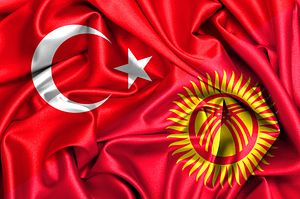The coup attempt in Turkey ten days ago blew the lid off simmering tensions between Turkish President Recep Tayyip Erdoğan and Fethullah Gülen, a former Erdoğan ally turned exile. Gülen founded a movement in the early 1990s which has built a transnational network–through schools, business and cultural associations–rooted in Islamic faith and Turkishness. A powerful part of Turkey’s soft power for years, the movement has become increasingly criticized since its leader’s 2013 falling out with Erdoğan.
The upheaval in Turkey touched off by the July 15 coup attempt–which Erdoğan says was organized by Gülen–saw more than 6,000 people detained by July 17 and many more in the ensuing days. Gülen, who lives in exile at a compound in Saylorsburg, Pennsylvania has denied involvement in the coup attempt made by a faction of the Turkish armed forces, suggested instead that the coup was “staged” by the government.
On July 20 the Turkish president declared a three-month state of emergency, vowing that “all the viruses within the armed forces will be cleansed.” The declaration essentially allows Erdoğan to rule by decree, bypassing parliament to enact laws, establishing curfews, suspending rights of assembly, allowing media restrictions and so on. Although the Turkish government said the state of emergency would not impact regular citizens, among the first decrees to follow the declaration was one that closed 1,043 private schools, 1,229 foundations and associations, 35 medical institutions, 19 unions, and 15 universities with links to the Gülen movement.
Central Asia, with its deep cultural, historical, and political links to Turkey writ large, will increasingly find itself under pressure from Ankara. The Gülen movement has founded charter schools and universities across the world, with Central Asia a prime market. The region’s development needs following independence included the necessity of addressing the region’s serious educational deficit.
Just as the coup was a long-simmering pot finally boiled over, Turkish pressure on Central Asia with regard to the Gülen movement has been in progress for several years. In August 2015, Samantha Brletich, writing for The Diplomat, put the then-recent closure of Gülen schools in Tajikistan in context. Tajik President Emomali Rahmon had, in May 2015, announced the closure of seven charter schools operated by the Tajikistan-based Salale Education Institution. The schools, first opened in 1992, “provided an educational alternative to the country’s poor and underfunded public schools.” Brletich offered two explanations for the closures. First, it was “a response to the increase in Turkish influence in Tajik politics and signal a greater alignment with Ankara’s policies.” But the closure also reflected state paranoia in Tajikistan. Erdoğan accused Gülen and his movement of creating a “parallel state,” a fear Rahmon likely shares.
A 2014 article published by the Carnegie Endowment for International Peace, cataloging the Gülen movement’s role in Turkish soft power, noted that there were approximately 30 Gülen schools in Kazakhstan and about 15 in Kyrgyzstan (plus the Tajikistan schools closed as noted above). The Gülen-affiliated schools in Uzbekistan had all been shut down by 2001 and those in Turkmenistan in the early 2010s.
Post-coup attempt state pressure on anything related to Gülen is at an all-time high. 24.kg reported that the Turkish foreign minister, Mevlüt Çavuşoğlu, had called on his Kyrgyz counterpart to do something about the “Gülen gang.” Citing Kazakh media, Çavuşoğlu reportedly said, “I called my Kyrgyz counterpart. This gang is one of the most powerful in Kyrgyzstan. I said to my brother, the Minister of Foreign Affairs of Kyrgyzstan: ‘If you do not change the attitude to them, then we will change the attitude to you. We are looking for support from our brothers, one can not turn away from brother. In these difficult days, you have to prove our brotherhood.’”
Turkish officials may want Kyrgyzstan to “prove” its brotherhood, but the Gülen-affiliated schools in Kyrgyzstan are among the country’s best. RFE/RL reported on the pitting of two Bishkek-based universities against each other:
One, Manas University, is funded by the Turkish government. The other, Ataturk-Alatoo University, is funded by the global Islamic education network of Fethullah Gulen, the man Ankara blames for the July 15 coup attempt that killed hundreds…
Immediately after the coup was crushed, the Kyrgyz rector of the Ankara-funded Manas University organized a forum to denounce the attempted putsch. Sebahattin Balf also used the forum on July 18 to publicly warn his fellow citizens that the Gulen group could equally make “people in Kyrgyzstan do terrible things in their own country.”
The post-coup attempt period in Turkey has been rife with arrests and crackdowns–aimed at first the military faction participating, then academics and journalists–with many Western analysts warning and worrying that the coup attempt has become the excuse Erdoğan needed to further consolidate power. Çavuşoğlu tweeted an image of an email apparently sent from a BBC producer to a Turkish student involved in the Turkish Society at a London university seeking comment saying, “We are struggling to find anyone in the country who is critical of what the government is doing.” Çavuşoğlu’s comment, “BBC regrets not to find anybody to defend the coup attempt and attack the government. #Sorry,” has been read by many regional watchers as a smug celebration of the government’s crackdown and intimidation campaign.
As the crackdown widens from people directly involved in the coup-attempt to those guilty, it seems, by association, Central Asia will be paying attention.
































